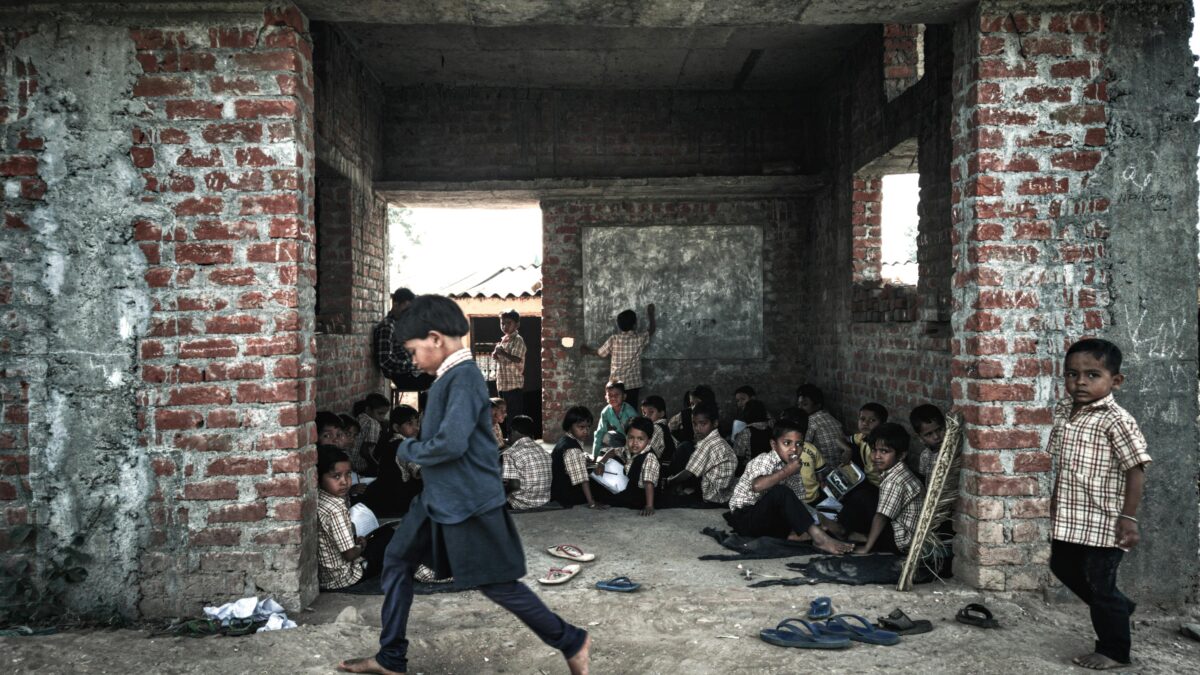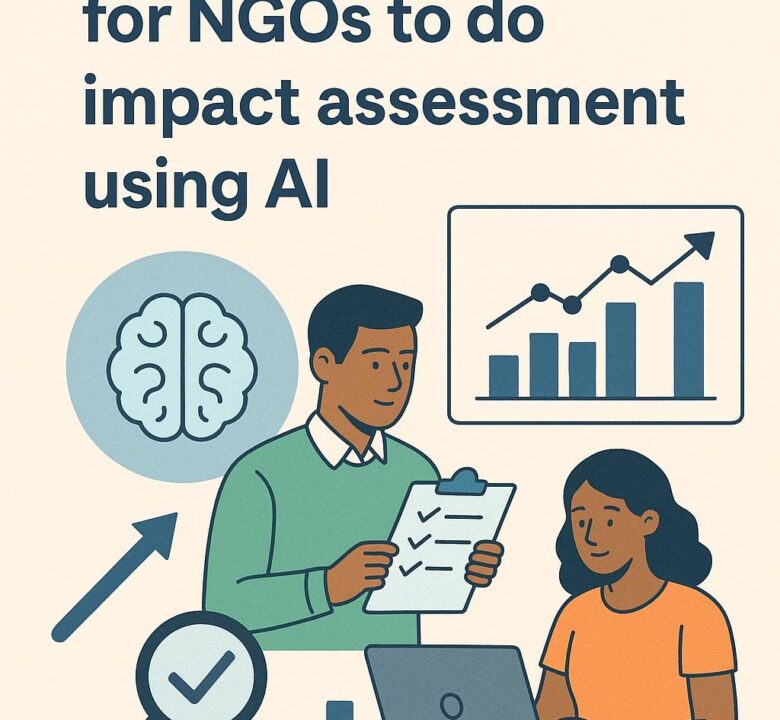
Is it only the wolves claiming the lives of these children, or are we turning a blind eye to the deeper issue?
September 19, 2024
How Can We Work on Making Internship Scheme Successful?
October 24, 2024Increased Income Inequality Due to Inadequate Foundational Skills in Education
The ineffective delivery of foundational skills in education has a profound impact on our country’s economy.
Foundational skills—especially in literacy, numeracy, and socio-emotional development—are critical for personal growth and employability, and the absence of these skills results in skill gaps, unemployment, and lower productivity. These in turn lead to reduced economic growth and lower income of the workforce enhancing income inequality.
Education is a key driver of human capital development, and poor foundational skills impede our ability to build a strong, innovative, and skilled workforce.
The delivery of foundational skills to children in our country faces numerous challenges. These issues are particularly evident at the early stages of education (pre-primary and primary levels) and need urgent attention from various quarters of society.
Some key factors impacting the effective delivery of foundational skills include:
- Start Age and Quality of Early Childhood Education
Limited and delayed access to pre-primary education, especially in rural areas, deprives many children of timely and quality early learning opportunities. Early childhood education is vital for fostering cognitive and language development, and without it, children’s readiness for elementary school is significantly affected.
The quality of early education varies greatly across states and schools, with inconsistencies in curriculum, teacher training, and infrastructure, leading to uneven skill development among children.
As a society, it’s crucial to provide every child with early access to education that includes standardized facilities and training, ensuring they have the foundation to thrive and succeed in their future endeavors.
Raising awareness among parents about the importance of early admission to Anganwadi and pre-primary schools and emphasizing the long-term benefits of early exposure to learning, is essential. Equipping Anganwadi and pre-primary schools with proper facilities, trained teachers, nutritious meals, and medical care will also be key to supporting children’s growth and development.
- Teacher Training and Pedagogical Methods
Inadequate Teacher Training: Teachers, particularly in government and rural schools, often lack the necessary training to effectively teach foundational skills. Many are unfamiliar with age-appropriate pedagogy or child-centred approaches that promote critical thinking and curiosity.
The continued reliance on traditional teaching methods limits the development of key foundational skills such as problem-solving, logical reasoning, and conceptual understanding, especially in numeracy.
To address this, we need to focus on training primary education teachers in effective pedagogical methods as part of Corporate Social Responsibility (CSR) initiatives. Equipping teachers with the right skills will greatly enhance the learning process and improve educational outcomes.
- Curriculum Design
The curriculum is often not designed to meet the specific needs of primary school students, with insufficient emphasis on language development, basic literacy, and numeracy skills.
Lack of Contextualization: Teaching materials and curricula are frequently not adapted to the local context, language, and culture of the children. This disconnect between what is taught and the children’s real-life experiences can hinder their ability to grasp foundational concepts.
Modification of curriculum and creation of content which is relevant to local context is necessary.
Introducing English language skills at an early age is essential to ensure that children become comfortable with the language. In addition to language skills, it’s crucial to incorporate innovative and simple methods to teach numerical skills, making learning more engaging and effective for young students.
Creation of age-appropriate content under CSR can go help in making curriculum relevant to meet specific needs of the kids.
- Language Barriers
Children are often taught in regional languages at an early age. As the children grow older educational materials and books in regional languages are often limited, which can hinder the development of advanced skills in these kids.
Consistency in the medium of instruction from an early age is therefore crucial. Language gaps can significantly delay learning, particularly in reading and comprehension.
Introducing English language skills early on at least as second language combined with the integration of technology, is essential to engage students and help them become comfortable with adopting new technologies and language which are key drivers of productivity and economic progress in fields like IT, automation, and AI.
From an economic perspective, equipping future citizens with the ability to embrace new technologies is vital for positioning the country as a leader in global technological advancements.
Introduction of English as language under remedial classes under CSR sponsorship from a very early age will help these kids tremendously.
- Socio-economic Barriers
Poverty and Malnutrition: Many children come from economically disadvantaged families, which affects their ability to focus on learning due to malnutrition. Poor health and malnutrition are major factors that influence cognitive development and the ability to grasp foundational skills.
Limited Parental Support: In lower-income families, parents may lack the time, education, or resources to support their children’s early learning at home. This limits reinforcement of foundational skills outside school.
Lack of study materials: Lack of study materials which can help in comprehension and reinforcement of foundational skills needs to be looked at. Distribution of worksheets, reinforcement materials free of costs from schools is required so that children can practice learning at home is need of the hour.
Creation of model Anganwadi under CSR will be a worthy initiative from corporates in this regard.
- Assessment and Learning Gaps
Focus on Summative Assessment: Schools often emphasize standardized tests and assessments that measure rote memorization rather than skill development. This prevents teachers from identifying and addressing gaps in children’s foundational skills early on. Lack of diagnosis of conditions like autism and learning disabilities compound the problems in these kids.
Learning Gaps in Early Grades: Many students move to higher grades without mastering basic reading and arithmetic skills. These gaps widen over time, making it harder for children to catch up with their peers and impacting their long-term educational outcomes.
Remedial classes in afterschool hours will help the kids catch up with their peers and will go a long way in making them ready for higher education.
- Teacher-Student Ratio and Classroom Environment
High Pupil-Teacher Ratio: Overcrowded classrooms, particularly in government schools, make it difficult for teachers to provide individualized attention. As a result, children struggling with foundational skills do not get the support they need.
Limited Resources in Government Schools: Many government schools lack adequate teaching aids, books, and other learning materials that can help foster basic skills. Without engaging resources, children may lose interest in learning foundational concepts.
- Lack of Emphasis on Foundational Skills in Higher Grades
Promoting Students Without Mastery: In many cases, children are promoted to the next grade even if they have not mastered the foundational skills of reading and math. This creates a cumulative learning deficit that becomes harder to address as they progress through school.
Teacher Expectations: Many teachers in higher grades assume that students have already mastered foundational skills, leading them to focus on more advanced content. This further marginalizes students who have gaps in early learning.
- Ineffective Use of Technology
Digital Divide: While technology could play a crucial role in strengthening foundational skills, there is a wide digital divide. Children in rural areas or lower-income households often lack access to devices, the internet, and digital learning platforms which results in them not opting for STEM in higher education programs due to lack of confidence.
Low Digital Literacy: Even when technology is available, both students and teachers may lack the necessary digital literacy to effectively use these tools for learning foundational skills.
Provision of digital devices from an early age under aegis of CSR can help in filling these gaps for the kids.
- Insufficient Focus on Socio-emotional Development
Neglect of Socio-emotional Learning: Socio-emotional development, which is essential for a child’s overall cognitive and social growth, is often overlooked. Children need to develop skills like self-awareness, collaboration, and problem-solving alongside literacy and numeracy for a holistic foundation.
Deployment of trained teachers and counsellors under CSR can be considered to overcome this challenge.
- Policy Gaps and Implementation Challenges
Weak Implementation of Policies: While there are government initiatives like the National Education Policy (NEP 2020) that emphasize the importance of foundational literacy and numeracy, implementation remains a challenge, especially in remote and underserved areas.
Lack of Coordinated Efforts: The fragmented approach between different states and school systems, as well as a lack of collaboration between various stakeholders (government, NGOs, private sector), leads to inconsistent results in improving foundational skills.
Arranging training for NEP and helping rollout of NEP at a district level under CSR would be great initiative to consider.
- Learning Loss due to COVID-19
Pandemic Impact: The COVID-19 pandemic has significantly impacted early education, leading to learning loss for many children, especially those in low-income and rural settings. The extended school closures and the lack of effective online learning options have worsened the gaps in foundational skills.
Addressing these challenges will require understanding the gap, devising suitable strategy to tackle these gaps and implementation on the ground of the same is need of the hour.
Work on pre-primary education requires a lot of patience and effort from CSR partners. The result takes a long time to be visible, but the impact will very worthy of the effort put in by the donor.



